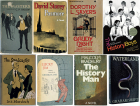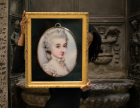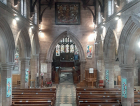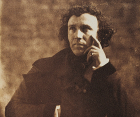Britain & Ireland
What was it about industrialisation that led to the emergence of a woman’s movement in Victorian Britain? Why do we see so many people fighting for so many rights and liberties in this period and what are the origins of some of the issues we still campaign on today? This section includes our major series on Social and Political Change in the UK from 1800 to the present day. There are also articles and podcasts on the often violent relationship between England and Ireland during this period and England’s changing relationship with Scotland and Wales. Read more
Sort by:
Date (Newest first) | Title A-Z
Show:
All |
Articles |
Podcasts |
Multipage Articles
-

The Legacy of the Z Special Unit in World War II
ArticleClick to view -

Crowdsourcing the heritage of the Second World War
ArticleClick to view -

Anti-Americanism in Britain during the Second World War
ArticleClick to view -

The Coronation of King Charles III
ArticleClick to view -

The portrayal of historians in fiction: people on the edge?
ArticleClick to view -

Real Lives: Beatrice Alexander
ArticleClick to view -

What Have Historians Been Arguing About... the consequences of the industrial revolution
ArticleClick to view -

Recorded Webinar: Female slave-ownership in 18th- and 19th-century Britain
ArticleClick to view -

Recorded Webinar: Nineteenth-century crime and punishment
ArticleClick to view -

Philip Larkin: appreciating parish churches
ArticleClick to view -

My great-grandfather and the Italian Campaign
ArticleClick to view -

Recorded webinar: Queer beyond London
ArticleClick to view -

Film: Bricks and the making of the city - London in the 19th century
ArticleClick to view -

Mountbatten in retirement: the abortive trip to rebel Rhodesia
ArticleClick to view -

History Abridged: London’s women statues
ArticleClick to view -

Real Lives: Who was Sir John Steell?
ArticleClick to view -

History Abridged: Balmoral
ArticleClick to view -

Tourism: the birth and death of the little Welsh town?
ArticleClick to view -

Dress becomes her: the appearance and apparel of Elizabeth II
ArticleClick to view -

70 years – 70 ‘things’ that tell our story
ArticleClick to view

